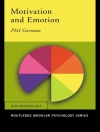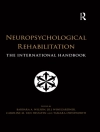Meditation and Modern Psychology examines meditation from two perspectives: first, from the perspective of religions and philosophies such as Zen, Yoga and those of the Sufis and Christian mystics; and then from the modern psychologist’s point of view: what is happening neurophysiologically during and after meditation? By looking at meditation from both points of view, Ornstein produces a modern scientific synthesis – one sympathetic to the practice of meditation, enabling the reader to appreciate and understand meditation as a tool that can lead to a different mode of perception. Robert Ornstein, Ph.D., has written more than twenty books on the brain, mind, and consciousness since the publication of the first edition of this book in 1971. His work emphasizes our urgent need and ability to develop perceptions beyond our human inheritance. From the preface to the 2008 edition of Meditation and Modern Psychology: ‘I wrote this essay in 1970, when meditation was a curiosity, known only to a few tie-dyed people and, of course, the Beatles. There were a spasms of ‘Transcendental Meditation’ burgeoning, a few obscure Zen centers, odd Yogas, and more. That’s where it was, 38 years ago, and this book now looks like a good basic introduction to the high-tech research that followed.’
قائمة المحتويات
Preface
Foreword
Introduction
Chapter 1: ‘Turning Off’ Awareness
Chapter 2: The Esoteric and Modern Psychologies of Awareness
Chapter 3: An Extended Concept of Human Capacities
Chapter 4: A Closing Note
Notes
Bibliography
عن المؤلف
Considered one of the foremost experts on the brain, Robert Ornstein was an internationally renowned psychologist and author of more than 20 books on the nature of the human mind and brain and their relationship to thought, health, and individual and social consciousness. Perhaps best known for his pioneering research on the bilateral specialization of the brain, Ornstein continually emphasized the necessity of ‘conscious evolution’ and the potential role of the right hemisphere in expanding our horizons to meet the challenges of the 21st century. He taught at Stanford University, Harvard University and the University of California, San Francisco. His books have sold over six million copies worldwide, have been translated into dozens of languages and used in more than 20, 000 university classes. He founded the Institute for the Study of Human Knowledge (ISHK) in 1969 and served as its president until his death in December of 2018.












